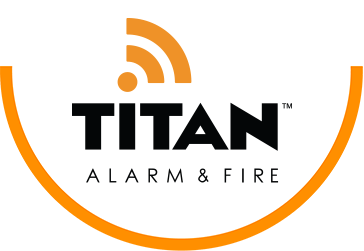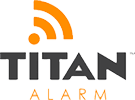
Here at Titan Alarm, Inc., we’re often asked by our customers whether it’s necessary to obtain a permit for a security system for home use. While any homeowner in the U.S. can install a security system without first acquiring a permit, the issue becomes a bit more complex in terms of the actual operation of the system. As a general rule, a home security permit is required to operate any alarm-based system equipped with emergency response features or remote monitoring capabilities.
Why Are Permits for Home Security Alarms Required?
The primary motivation for requiring a permit for alarms is to reduce the occurrence of false alarms, a common issue with many home security systems. False alarms result in a needless waste of police and fire department resources and prevent the timely dispatching of first responders to real emergencies. Home security permits provide a means of registering your alarm system with your local municipality. In many locations, emergency personnel will not respond to an alarm at a property that is generated by an unregistered security system.
What Is the Process for Obtaining a Security Alarm Permit?
While every state and/or municipality has its own specific procedures for obtaining a permit, the process generally entails the following steps:
- Registering your system with your local police and fire departments
- Paying the required fee (often annual, but varies by location)
- Receiving a permit number and a specific access code to verify alarms
- Agreeing to adhere to all permit terms and conditions
What Happens If I Have a Permit and Accidentally Trigger a False Alarm?
False alarms are often unintentional — they can occur for various reasons such as malfunctioning equipment and operator error. Many municipalities have instituted a system of escalating fines to offset the cost of dispatching first responders. Some areas allow for one or two “free” false alarms prior to levying financial penalties.
Do I Need More Than One Permit?
Depending on where you live, it’s possible you will need to obtain more than one home security permit. For example, some municipalities require separate permits for burglar and fire alarms. Other areas offer a combined permit that covers the entire system.
Where Do I Obtain Security System Permits in Arizona?
In Arizona, security system permits are administered at the local level. To learn more about the permit requirements and procedures in Phoenix and several neighboring cities, click here. You can also contact your local fire department, police department or municipal government office for additional information.
Contact Titan Alarm for Your Home Security System Needs in Phoenix and Beyond
Titan Alarm is an experienced, professional home security solutions provider serving the Phoenix area and all of Maricopa County. In addition to helping you design and install a customized, fully integrated security system that will protect your family and property against fire, theft, vandalism and other threats, we can provide reliable guidance on the home security permit process in your Arizona municipality. Contact us to schedule a no-obligation in-home security consultation today.
Learn More About Protection From Burglars
- Signs That a Burglar is Targeting Your House
- Sneaky Burglar Tactics You Might Not Be Aware Of
- Steps to Take After a Break-In
Updated by Titan Alarm on October 31, 2018.












